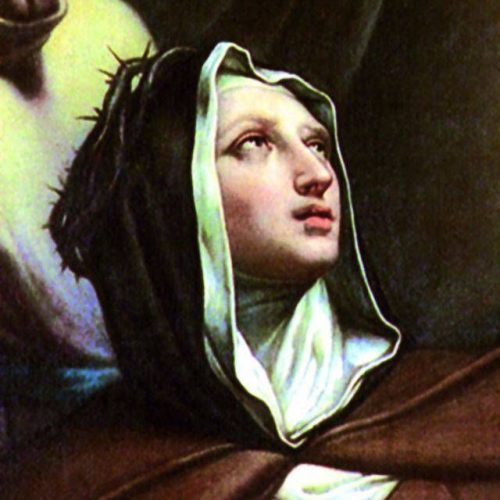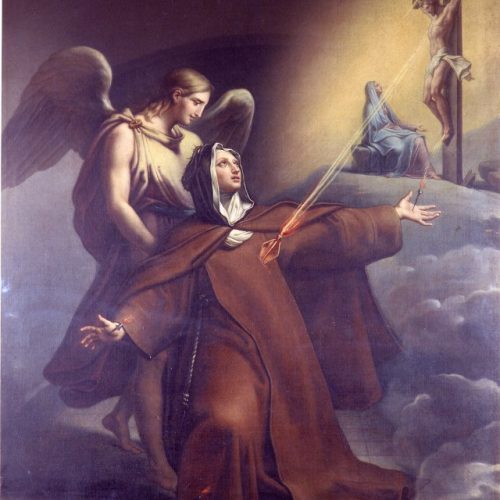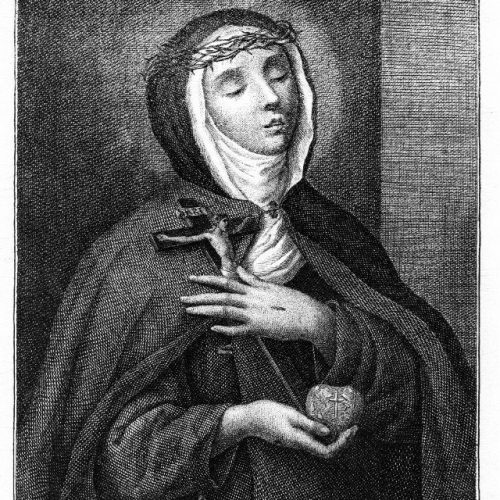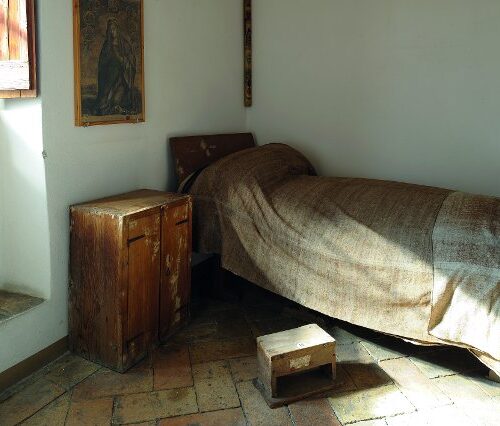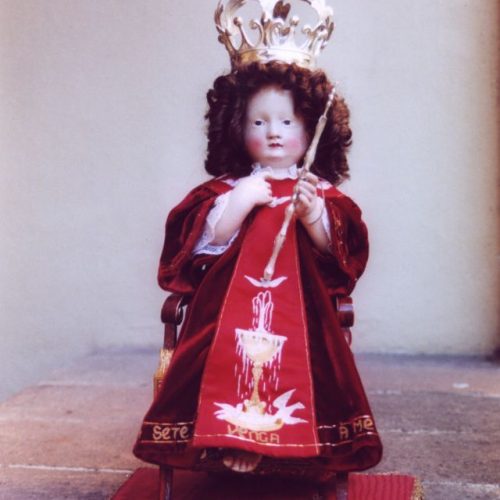Seventh daughter of Francesco and Benedetta Mancini, Orsola Giuliani was born December 27, 1660, in Mercatello sul Metauro, a fief in the Duchy of Urbino.
After her mother’s death, she moved to Piacenza with her father who had found a new job. Three years later, she went back to Sant’Angelo in Vado under the care of her uncle Rasi.
On October 28, 1677, Orsola joined our monastery of Capuchin Poor Clares in Città di Castello. The Bishop Sebastiani gave her the religious habit and a new name: Sister Veronica. All her life – which will end on July 9, 1727 – is a growing assimilation to the mystery of Christ, crucified and risen.
Her mystical experience
Veronica was affected by the environment in which she was born and lived: her family, her confessors and spiritual directors, the civil and ecclesiastical history of her century (Jansenism and Quietism), as well as the books she read. Veronica is a woman in love with Jesus, her Crucified and Risen Bridegroom. He is the only Master of her life. Her attitude of submission to all ecclesiastical authorities – her superiors, sisters and the spiritual directors who imposed her to write the Diary – was not due to weakness, but to her faith. All human injustice she underwent was endured for God’s sake. In her heart, she kept the Treasure and she was in intimate communion with Him. Jesus revealed His love to her throughout the liturgical year in the daily liturgy and the Holy Sacraments, especially Confession and the Eucharist to which, according to the custom of the time, she could not participate every day, but which she always desired. Her diary discloses how – precisely because she belonged entirely to Jesus – Veronica became a “woman for others”: a missionary, a mender or, as she called herself, the “mezzana“, the one who “stands between”, who stays at the door so that those who arrive there may receive the “good news” of salvation. The high walls of the enclosure do not block the palpitations of the world with its problems and sorrows. On the contrary, they help those who live there to devote themselves to those who live, work and suffer. Completely devoted to God and humankind, Veronica revealed that “the heart does not know seclusion”, but expands to become compassionate as God himself. The Paschal Mystery, in its essence, is the cornerstone and the heart of her contemplation.
Her message
Veronica proposes a fundamental message: to rediscover the centrality of a God who reveals himself to us in Jesus Christ. Her entire life is an invitation to rediscover Jesus Christ, the heart of our faith – not a doctrine, but an encounter with a living Person.
The Christ of Veronica, however, is not a standardised model that we must match with inhuman efforts under pain of everlasting perdition, but rather a God who became Man so that man may become God.
In the Incarnation, God became a tender child and assumed our condition. This is the God of Christian faith, who asks only to be accepted, heard and loved with a vital, personal and spousal love, which, in turn, makes us worthy of the total donation of ourselves as he has completely devoted himself. He is a God of overwhelming Love, who changes, and transforms people and their behaviors, so as to fulfill the personal plan He has for each of us.


